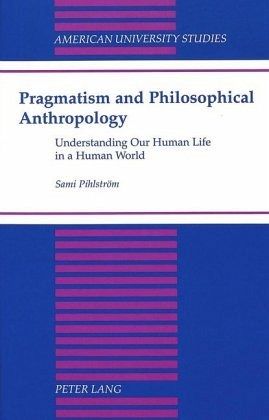Nicht lieferbar

Pragmatism and Philosophical Anthropology
Understanding Our Human Life in a Human World
Versandkostenfrei!
Nicht lieferbar
Pragmatism, the single originally American philosophical tradition, has in recent decades once again become widely discussed in many fields of philosophy, including metaphysics, epistemology, philosophy of science, philosophy of religion, and moral philosophy. This study seeks to show, both historically and systematically, that the issue of "human nature," the main problem of philosophical anthropology, is (or at least should be) at the center of pragmatistic philosophizing. The author formulates a contemporary version of pragmatism largely based on William James's (1842-1910) work, arguing th...
Pragmatism, the single originally American philosophical tradition, has in recent decades once again become widely discussed in many fields of philosophy, including metaphysics, epistemology, philosophy of science, philosophy of religion, and moral philosophy. This study seeks to show, both historically and systematically, that the issue of "human nature," the main problem of philosophical anthropology, is (or at least should be) at the center of pragmatistic philosophizing. The author formulates a contemporary version of pragmatism largely based on William James's (1842-1910) work, arguing that such a neo-Jamesian framework also can meet postmodernistic and irrationalistic threats.



